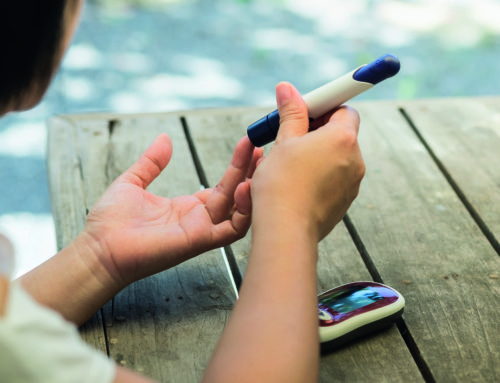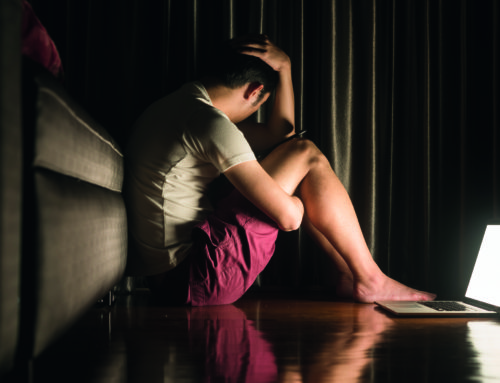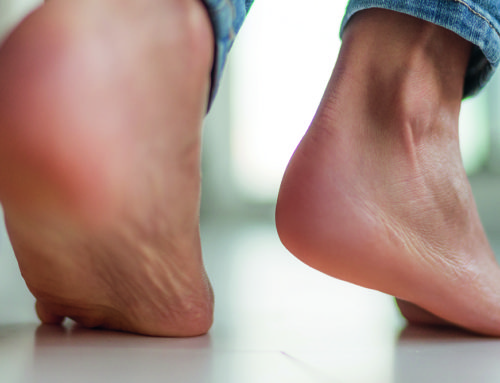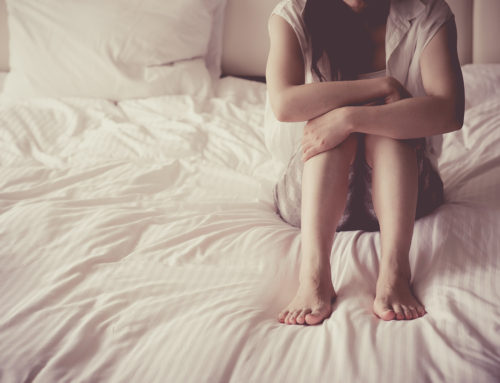Despite recent increased levels of discussion around the subject of the menopause, due to a previous paucity of information and poor education, there’s a high chance that many women will still not understand the changes they’re going through; in which half have reported not consulting a healthcare professional about their symptoms. This can be a particular cause for concern in cases where women are going through early or surgical menopause, explains Dr Shahzadi Harper, as she sheds light on the transition, and the importance of it becoming on-trend.
Speaking about vaginal health has become mainstream! More recently, campaigns like the Me. No. Pause. posters on Transport for London sites, plus celebrity attention, have even brought the menopause to the foreground. This is, for the most part, fantastic news for women’s health and healthcare professionals. With more discussion around the menopause transition, hopefully less women will suffer from its symptoms in silence, which, according to the British Menopause Society (BMS), many do.
It has been labelled a ‘taboo subject’. The menopause is poorly covered by the national curriculum and at medical schools, and then, forgotten for the 30-odd years until it manifests as a reality in every woman’s life.
Typically, the transition is retrospectively diagnosed after menstruation has ceased for a full year; menopause is not a singular event, but a gradual process that can take between three-and-four years. The actual symptoms, however, can endure for a further 10 years.
It’s estimated that 13 million women in this country are current, peri- or post-menopausal. That’s one-third of British women, usually between the ages of 45-and-65, who are experiencing some symptoms. A study by the BMS stated that, of these 13 million, 51 per cent found their sex lives to have been affected, 47 per cent had had to take time off work, and a third stated that their mental health and confidence have been compromised.
As with all internet trends – the menopause being no exception – it’s easy to find vast swathes of online opinion. But, when it comes to treating menopausal symptoms, or any health issue for that matter, this can be problematic. Celebrity bloggers and lifestyle gurus often have no medical background, yet despite this they frequently promote radical healthcare choices that may not be suitable to everyone. This can be dangerous and damage women’s health further.
Symptoms
Embarrassment around sex, libido, and ageing is one of the biggest hurdles for women and their GPs to overcome. This is obviously an endemic cultural issue that can’t be solved overnight, however, it’s still important to endeavour to make patients feel comfortable in these kinds of discussions, in any way possible.
Listen and be sympathetic. Many of the menopausal symptoms are deeply personal. Physical issues like vaginal dryness can be almost impossible to broach with a pharmacist or GP, and yet without treatment can be extremely painful for many women. The deeper psychological issues around body image and self-worth will often need to be treated with therapy.
Each case is individual. Reduced oestrogen production affects the brain, which in turn affects mood. It affects the hypothalamus, causing hot flushes and night sweats, which in turn can cause poor sleep, leading women to suffer problems with memory and ‘feel like they are going mad’. And it affects the skin, which can lead to problems with elasticity, and in many women, vaginal dryness, and vulvodynia. In total, 34 different menopausal symptoms have been reported.
While some of these can be mitigated through lifestyle choices, such as increased exercise, reduced alcohol intake, and changing diet, others may require diagnosis through sensitive discussion with healthcare professionals. I only use blood tests to measure levels of the reproductive hormone, FSH (follicle-stimulating hormone), in instances of early menopause or if a woman is using a progesterone-only contraception, like the Mirena coil.
Care should be taken to prescribe the correct treatment for symptoms as, again, early menopausal signs are often missed or misinterpreted, especially when they take the form of migraines, insomnia, or anxiety. Every healthcare professional should have access to a menopause doctor, and while this isn’t always possible, taking the time to diagnose menopausal symptoms correctly can reduce the number of subsequent appointments. As a rule, if a pharmacist suspects symptoms of being demonstrative of menopausal transition, they should advise that patient to contact their GP or to see a menopause doctor.
Treatment Options
Dependent of whether a woman’s menopause has begun naturally, or triggered surgically, treatment will need to be tailored to suit. In cases where a woman has suffered oestrogen-receptor-positive breast or ovarian cancer, hormonal treatments are not appropriate and natural remedies need to be sourced.
These can take the form of certified-organic, hormone-free lubricants and vaginal laser treatment, used to reverse the effects of vaginal atrophy. Sourcing gentle and effective brands is important as many contain chemicals dangerous to a woman’s health.
Cognitive Behavioural Therapy can be recommended to handle anxiety, insomnia, and hot flushes, and some herbal supplements can also be used, although emphasise caution as they can interfere with other medication.
Hormone-Replacement Treatment (HRT) has received a lot of negative press, although it is the most effective way to treat menopausal symptoms; 95 per cent of women say that they would prefer to seek natural options before trying the drug. It is, as the name would suggest, a way of replacing the hormones that have ceased to be produced naturally. Studies in 2000 and 2001 raised concerns that HRT may increase the risk of breast and ovarian cancer, even heart disease, which is why its long-term use has been questioned. This evidence has gone on to be dismissed as inaccurate.
In my clinic, I offer women an in-depth consultation to assess their needs as an individual. Usually my advice takes the form of a combined approach, including lifestyle modification, natural remedies, and HRT.
Most women will spend a third, to half their lives in menopause. It is important to identify menopausal coping strategies early to maintain quality of life and wellbeing. Life-coaching and emotional support is also a big part of what I do as often women need a little boost into their third act.
About the Author
Shahzadi Harper is a London-based menopause doctor. She is interested in optimising women’s wellbeing and empowering them to look and feel their best. She looks after women of all backgrounds and ethnicities, enabling them to make informed choices for their optimal health and longevity by balancing their hormones from turbulent teens through the menopause transition and beyond.
Dr Harper can be contacted on 07881 364 644, or emailed at info@theharperclinic.com.








